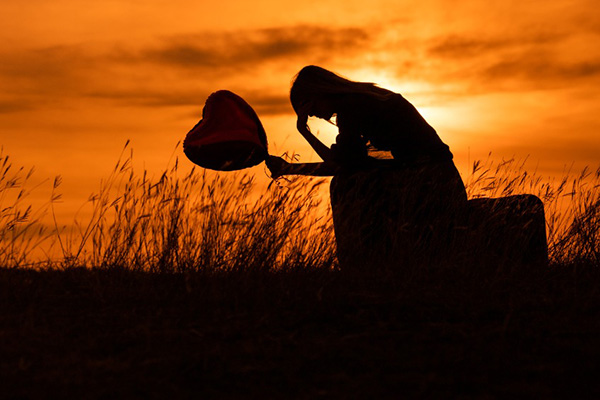choices
Helping Children Navigate Divorce
 When parents get divorced it is always difficult for the entire family. Navigating through this time is usually challenging. There is also no manual or guidebook for how to do things the right way, so parents have to figure it out as they go.
When parents get divorced it is always difficult for the entire family. Navigating through this time is usually challenging. There is also no manual or guidebook for how to do things the right way, so parents have to figure it out as they go.
Same with the children. It can be very scary for them not knowing what to expect and sometimes feeling obligated to take sides. It can be a very sad, stressful time for children, especially when parents are so caught up in their disputes and drama that they lose sight of what is best for their kids. The kids are not the ones getting the divorce.
However, I believe most parents really do try to do their best to soften the blow and make it work for everyone involved.
Children tend to want to please their parents and not cause further upset. So, tend to not speak up. They sometimes suppress their feelings of hurt, resentment or fear. Sometime children feel like they need to choose one parent over another.
Everyone needs to feel they are being heard and their needs considered. It is therefore best to listen to all sides before making decisions. Going through this process can be tricky. You do not want your child to feel neglected or abandoned in the process.
Understanding your children’s needs and feelings, and dealing with it, is the first step into helping your child get through it with the least amount of trauma. If a parent finds this difficult to ascertain, then it is wise for them to get some professional help and guidance.
Mistakes Are Necessary For Spiritual Growth
 Have you ever felt like you made a wrong choice or bad decision that caused everything to fall apart or steered your life went in the wrong direction. Maybe you knew it was the wrong choice, but you did it anyway? Well, every mistake is an opportunity for growth. There are no mistakes in life, only lessons. Without mistakes, there is very little personal and spiritual growth.
Have you ever felt like you made a wrong choice or bad decision that caused everything to fall apart or steered your life went in the wrong direction. Maybe you knew it was the wrong choice, but you did it anyway? Well, every mistake is an opportunity for growth. There are no mistakes in life, only lessons. Without mistakes, there is very little personal and spiritual growth.
Let’s say you choose to date a guy with a bad reputation. Then, as your gut feeling had warned and your psychic advisor had predicted, he cheats on you, and ultimately dumps you for someone else. Your inner guidance told you it was not a good idea; spirit advised against it. Yet, still you chose to find out the truth the hard way, by experiencing it for yourself.
But then you still do not learn the lesson. You go and do it again. You take him back and trust that he has changed as he has promised. Then he does the same all over again. Do you continue to stay and have him hurt you and take advantage of you? If you do, you still have not learned the lesson.
So, what is the lesson here? Well, the first thing you would have to recognize is that the lesson is not about him. It is about you. It is about establishing your self-worth and building your self-esteem. It is about accepting the fact that you, like anyone else, deserve to be loved and to be happy. And it is about learning to trust your inner guidance and pay attention when spirit guides you.
I have worked with many clients over the years who find all kinds of excuses and justifications for staying in a bad relationship, a toxic workplace, or a dysfunctional family environment.
Are You Consciously Guided By Spirit?
 Our guides are constantly directing us toward our highest good and the fulfillment of our soul purpose, whether we are aware of it or not. Their guidance is all the more effective and efficient when we are consciously aware and open to it on a daily basis.
Our guides are constantly directing us toward our highest good and the fulfillment of our soul purpose, whether we are aware of it or not. Their guidance is all the more effective and efficient when we are consciously aware and open to it on a daily basis.
We are all here to fulfill our soul’s mission in this lifetime. We have agreed to come to Earth for a specific purpose or calling. I also believe that if that mission is not accomplished, we will keep coming back to this plane of existence until it is.
Our spirit guides are with us every step of the way to assist and support us in achieving these life goals. These non-physical beings are an essential part of our spiritual journey. Just as we have teachers, mentors and protectors in the physical world, our guides provide support and encouragement in the metaphysical realms.
Everyone has one or more spirit guides assigned to them. These guides are aware of our life’s purpose, challenges and lessons, and they help us navigate these aspects of life. Every day our guides nudge us in the right direction with signs, synchronicities, gut feelings, hunches, ideas, dreams, visions, inspirations, insights and warnings as we navigate life’s challenges and pursue our goals. They are also sources of unconditional love and understanding.
There are several types of spirit guides, all of which have different roles and functions. Some are the spirits of deceased loved ones and ancestors, or even nature or animal spirits. Others are guardian angels, ascended masters, or other spiritual beings or entities who have lived many lifetimes and reached a high level of spiritual evolution and enlightenment.
Spirit Guide Teachings & Traditions
The concept of spirit guides or similar beings who assist us on our spiritual journey is found in various spiritual and religious traditions around the world. While the specific names, forms, and functions of these beings can vary widely between cultures and belief systems, the underlying idea of benevolent spiritual beings providing guidance, protection, and support to individuals is a common theme. The following are some of the promiment teachings and traditions:
Shamanism: Shamanic traditions from various cultures, including Native American, Siberian, African, and South American traditions, often involve working with spirit guides. Shamans communicate with spirit helpers, often in the form of animals or ancestral spirits, to receive guidance, healing, and insight.
Indigenous and folk traditions: Many indigenous and folk traditions around the world believe in spirit helpers or guardian spirits to assist individuals in their daily lives and spiritual endeavors. These traditions often involve rituals, ceremonies, and prayers to invoke the help of benevolent spirits.
Neo-paganism and witchcraft: Modern pagan and witchcraft traditions, such as Wicca and Druidry, may include the concept of spirit guides, familiars (spiritual animal helpers), or deity guides. Practitioners may establish relationships with these beings through ritual, meditation, and spellwork.
Spiritualism: Spiritualism, a religious movement that emerged in the 19th century, emphasizes communication with spirits of the deceased, including spirit guides. Spiritualists believe in the existence of spirit realms and advocate mediumship to connect with spirits for guidance and messages.
Esoteric traditions: Esoteric traditions, such as Hermeticism, Kabbalah, and Rosicrucianism, often include the concept of spiritual beings or guides. These traditions explore hidden or mystical aspects of spirituality and may include practices for communicating with spiritual beings for enlightenment and spiritual growth.
Occult practices: Occultism encompasses a range of mystical and magical practices that often involve contact with spiritual entities. Occultists may work with ceremonial magic, divination, or astral projection to connect with guides or entities for spiritual insight and empowerment.
New Age spirituality: New Age beliefs encompass a wide range of spiritual practices and ideas, many of which include the concept of spirit guides. In New Age spirituality, spirit guides are seen as wise and loving beings who assist individuals on their spiritual journeys through intuition, dreams, and synchronicities.
Eastern spiritual traditions: Certain Eastern spiritual traditions, such as Buddhism and Hinduism, include a belief in celestial beings, or bodhisattvas, who serve as guides and protectors. Followers may invoke these beings for help and blessings on their spiritual path.
Judaism: Angels (malakhim) are considered divine messengers and servants of God in Judaism. They are believed to carry out God’s will, deliver messages, protect individuals, and assist in spiritual matters. Although they are not personal guides in the same way as in some other traditions, angels play a crucial role in Jewish theology and mythology.’
Islam: In Islam, angels (malāʾikah) are considered beings created from light who serve as messengers of God and guardians of creation. They perform various tasks at God’s command, including delivering revelations to prophets and recording the deeds of human beings. Angels are believed to play a role in guiding and protecting believers.
Christianity: In Christianity, angels are spiritual beings created by God to serve as intermediaries between God and human beings. They are often portrayed as messengers, protectors, and guides. Some Christians believe that each person is assigned a guardian angel for protection and guidance throughout life. Christians also believe that the Holy Spirit is God’s presence and power active in the world, guiding believers, inspiring spiritual growth, and providing comfort and wisdom. The Holy Spirit is seen as a personal divine guide who dwells within believers, helping them to understand God’s will and empowering them to live the Christian life.
Are You Consciously Guided By Spirit?
Unfortunately, many people are unaware of the daily guidance of spirits and do not recognize the messages they send. Often the messages our guides send are lost on us because our lives are too busy and our minds too busy. To make matters worse, we also tend to ignore signs, synchronicities, and intuitions. This often leads to poor choices and decisions, and sometimes to disastrous, even life-threatening situations!
Spirit can only suggest, encourage and recommend. Our guides cannot force us to do anything against our free will. Nor can Spirit interfere in our lives and direct our choices without our participation and consent. In other words, our guides can only help us if we are willing to help ourselves. For the best results, we must ask for guidance and support, and then be open to receiving it.
When we are consciously and willingly guided by Spirit, we become more empowered and begin to believe in ourselves and our ability to make the best choices. Once we begin to believe, our highest good begins to unfold and we begin to manifest what we need to fulfill our mission and live our best life.
When we are open to Spirit’s guidance in making the right choices and decisions, more things begin to fall into place easily in our daily lives. Spirit can provide the pieces of the puzzle that we need. All we have to do is ask and then pay attention when the answers come.
Connecting With Your Spirit Guides
It is important that we strengthen our connection to our guides through spiritual practice and increased metaphysical awareness. We will be better for it in the end, in this life and the next.
Cultivating stronger and clearer communication with your guides involves developing your spiritual awareness, openness, and sensitivity to subtle energies and messages. Here are some spiritual practices and techniques that can help strengthen your connection with your guides:
Automatic Writing: Sit quietly with pen and paper and allow yourself to write freely without consciously directing your thoughts. You may receive messages or insights from your guides through this practice.
Candle or Crystal Work: Light a candle or hold a crystal with the intention of connecting with your guides. Focus your attention on the flame or crystal and invite your guides to communicate with you.
Divination: Use divination tools such as tarot cards, oracle cards, runes, or pendulums to communicate with your spirit guides. Develop a personal practice of divination that feels resonant and meaningful to you.
Dreamwork: Pay attention to your dreams. Before going to sleep, set the intention to connect with your guides. Keep a dream journal by your bed to record any guidance you receive during dream states.
Intention-Setting: Clearly state your intention to connect with your guides. Affirm your willingness to receive their guidance and support. Setting clear intentions helps to align your energy and focus your attention on connecting with the spiritual realm.
Intuitive Development: Engage in exercises that develop your intuition, such as guided intuition meditations or workshops. Trusting your intuitive senses can strengthen your ability to perceive your guides.
Journaling: Keep a journal to record your spiritual experiences, dreams, and any intuitive insights you receive. Writing down your thoughts and experiences can help you identify patterns and messages from your spirit guides over time.
Meditation: Regular meditation practice is key to quieting the mind, enhancing intuition, and deepening spiritual awareness. Set aside time each day to sit quietly, focus on your breath, and create a calm inner space where you can be receptive to the guidance of your guides.
Mindfulness: Practicing mindfulness throughout the day helps you stay present and aware, making it easier to notice subtle signs, synchronicities, and intuitive feelings that may be messages from your guides.Prayer: Set aside time each day to pray or speak directly to your guides. You can use traditional prayers or just speak from your heart. Ask for guidance, protection, and clarity as you connect with them. Prayer is a beautiful way to express your intentions and gratitude to your guides, fostering a deeper connection and sense of awe in your spiritual exploration.
Prayer: Set aside time each day to pray or speak directly to your guides. You can use traditional prayers or just speak from your heart. Ask for guidance, protection, and clarity as you connect with them. Prayer is a beautiful way to express your intentions and gratitude to your guides, fostering a deeper connection and sense of awe in your spiritual exploration.
Self-reflection: Spend time in nature or in quiet spaces where you can reflect and connect with your inner self. Being in a natural environment can increase your receptivity to spiritual energies and messages.
Signs & Synchronicities: Make it a habit to ask your guides for signs or symbols that they are present and guiding you. Be open to receiving these signs in unexpected ways, such as song lyrics, animal encounters, or meaningful coincidences.
Visualization: Listen to guided visualization meditations to invite your guides into your consciousness, or do your own visualization exercise in which you imagine a sacred space where you can meet and communicate with them.
Before connecting with your guides, invoke spiritual protection and set clear boundaries. State your intention to communicate only with benevolent and loving energies that have your best interests at heart. It is also important to express gratitude for your guides and their presence in your life. Thank them for their support and guidance, even if it’s not always obvious. I like to start with a prayer:
My beloved Spirit Guides, I open my heart and mind to your presence. Please guide me with your wisdom and love. Help me to recognize your signs and messages. I am grateful for your support on my spiritual journey. Thank you for being with me always.
Remember that developing a strong and clear connection with your guides is a personal journey that unfolds over time. Be open to experimenting with different practices and approaches to discover what resonates most deeply with you and strengthens your spiritual connection. Trust your intuition and inner guidance as you explore the realm of personal spiritual guidance and communication.
Your guides are always with you and working for your highest good, even if you don’t immediately sense their presence. Cultivate patience and openness to receiving guidance in divine timing. Consider working with a trusted psychic advisor, spiritual teacher, or intuitive mentor who can offer guidance and techniques for strengthening your connection with your guides.
Spirit Guides In Psychic Reading
One of the best ways to receive messages and guidance from your spirit guides is to request a reading with a psychic, medium, or trance channeler. Many of my clients seek guidance from spirit guides for personal growth, healing from trauma, or making important life decisions.
Spirit guides play a significant role in authentic psychic and medium readings by providing valuable assistance and information for the reader to pass on to the recipient of the reading. Spirit guides are involved in readings in the following important ways
Facilitating communication: Spirit guides act as mediators or facilitators during psychic and medium readings. They help connect the psychic or medium to the spirit realm and the energies of deceased loved ones or other spiritual entities.
Provide information: Spirit guides relay information, insights, or messages through the psychic or medium during a reading. This information may come in the form of thoughts, feelings, images, or symbols that the reader interprets and communicates to the client.
Interpretive assistance: Spirit guides also assist the psychic or medium in interpreting the information received from the spiritual realm. They may provide additional context, clarification, or guidance to ensure that the messages are accurately conveyed and understood.
Protection and guidance: Spirit guides play an important protective role during readings, ensuring that only benevolent and helpful energies are allowed to communicate. They also guide the psychic or medium in maintaining a safe and respectful connection with the spirit realm, and help to create a sacred and harmonious space in which to conduct readings, infusing the environment with positive energies and spiritual protection.
Professional guidance: Spirit guides serve not only the recipients of readings, but also the readers. They provide ongoing guidance and support to psychics and mediums in their spiritual development and professional practice. My guides continually assist me in honing my reading skills, expanding my psychic awareness, and deepening my connection to higher consciousness.
Setting boundaries and ethics: Spirit guides help establish ethical boundaries and guidelines for conducting readings. They help ensure that the reader approaches his or her work with integrity, compassion, and respect for both the living and the deceased.
Overall, spirit guides play an integral role in psychic and mediumistic work, serving not only as sources of information and guidance, but also as supportive allies and teachers for readers, channelers, healers, and other spiritual practitioners. Their presence and assistance enhance the quality and authenticity of readings and foster meaningful connections between the spirit realm and people seeking divine guidance or communication with loved ones beyond the physical world. Working in partnership with spirit guides allows psychics and mediums to offer profound insights, healing messages, and spiritual guidance to those they serve.
The Happiness Trinity
 When a new year arrives, it is common for us to look back and wish we had done better in the previous year. To make matters worse, the past three years have been exceptionally difficult for all of us. All the more reason for us to now make a determined decision to strive for greater happiness in the coming year. But how does one achieve happiness?
When a new year arrives, it is common for us to look back and wish we had done better in the previous year. To make matters worse, the past three years have been exceptionally difficult for all of us. All the more reason for us to now make a determined decision to strive for greater happiness in the coming year. But how does one achieve happiness?
The true nature of happiness has been a topic of debate since the beginning of time. Does anyone really know what true happiness is? There are many opinions, views and theories on the matter, but I believe in the end one’s personal happiness is something only you can truly define or measure for yourself.
With that said, no matter what our personal idea of true happiness might be, it will always require the foundation of three key elements: wellness of body, mind and soul. Without an optimal trinity of physical, mental, and spiritual health, one cannot truly live your best life.
A happy life begins first and foremost with physical health and self-care. Our lifestyle habits define the quality of our life. Constantly indulging in the short-term pleasures of unhealthy lifestyle choices will not ensure a happy life in the long-term. Happy people eat nutritious food, get enough exercise, sleep well, manage their stress levels, and aim to maintain a sensible work-life balance.
A sense of being happy itself is one of the countless emotions we experience in life, and while it’s not possible to always feel happy, we can still choose how we respond to life’s challenges. Choosing to see a difficult situation as an opportunity rather than an obstacle, and choosing faith over fear, are common traits among many accomplished people.
Is Your History Repeating Itself?
 Are you feeling stuck making all the wrong choices and decisions? Are you repeating the same make mistakes? A study at the Max Planck Institute for Human Cognitive and Brain Sciences analyzed the processes that occur before the human brain makes a decision. In this study, participants were asked to press a button with their left, or right hand. They were able to do this at whatever moment they decided, however, they were asked to remember the specific time they recognized making their decision and to relay that information to the researchers.
Are you feeling stuck making all the wrong choices and decisions? Are you repeating the same make mistakes? A study at the Max Planck Institute for Human Cognitive and Brain Sciences analyzed the processes that occur before the human brain makes a decision. In this study, participants were asked to press a button with their left, or right hand. They were able to do this at whatever moment they decided, however, they were asked to remember the specific time they recognized making their decision and to relay that information to the researchers.
By observing the participant’s brain scanner, it was discovered that the researchers knew the participant’s decision seven seconds before the participant knew, based on observing electrical signals within the participant’s brain. This is important information, because it validates how much our subconscious minds are making decisions without us fully being aware of the choices we are making.
Although this research is based on making immediate decisions, how often are you aware of where their decisions are being based upon? How can you know if you’re making a decision based on old thought patterns and habits, rather than based on higher, conscious awareness?
The philosopher George Santayana famously said, “Those who do not learn history are doomed to repeat it.” While this is true on a global scale, this is also true in our personal relationships. My interests in psychology and consciousness originated from observing my family, their unhealthy patterns, and observing the resulting choices I’ve made myself, in response to those patterns.
The Healing Power Of A Smile
 I have noticed something very interesting lately, since we are no longer wearing masks in public. There are two types of people: those who often smile and laugh, and those who do not. You can smile at some people that seem to not be very happy and they will smile right back at you, while others will just look at you like you’re an alien.
I have noticed something very interesting lately, since we are no longer wearing masks in public. There are two types of people: those who often smile and laugh, and those who do not. You can smile at some people that seem to not be very happy and they will smile right back at you, while others will just look at you like you’re an alien.
I love to smile at people and change their energy, it uplifts them. I can tell. I can see the auric energy around those who smile, and it’s much brighter and lighter. It’s a healing, positive energy. Those that don’t smile have dark and cloudy auras. It makes me feel good to help people get into a better mood and access their higher consciousness, as it will just keep the ball rolling for a positive domino effect for the rest of their day.
But there are those people who find nothing pleasant or amusing and will not smile for anything. I understand that sometimes life just seems to hand us a bad hand of cards, or just seems depressing or no fun. But we all have the ability to smile and our sense of humor is a gift from God. If you can’t smile for yourself to change your own energy, or find yourself unable smile back at those that smile at you, maybe take a look in the mirror and that may inspire you to crack a smile. It changes energy and lives.
As a psychic, I consult many people who are in unloving relationships and marriages. They stay with partners who are unkind, abusive, or unfaithful. They carry a torch for spouses who talk them down to them and make them feel less than. For many it causes mental and physical health problems.
